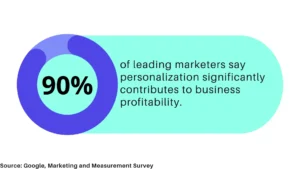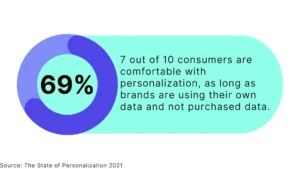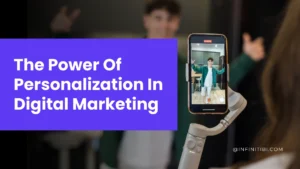So, what exactly is personalization in digital marketing, and how can it benefit your brand?
Personalization in digital marketing refers to using customer data and behavior to create customized and relevant experiences for each consumer. This can include things like targeted email campaigns, personalized product recommendations, and individually tailored ads.

One of the main benefits of personalization is that it helps to build trust and strengthen the relationship between a brand and its customers. When a consumer feels like a brand truly understands their needs and preferences, they are more likely to continue doing business with that brand. Personalization can also improve the overall customer experience, as consumers are more likely to engage with content that is relevant to them.
In addition to building trust and improving the customer experience, personalization can also lead to increased sales and conversions. By showing consumers products or services that are tailored to their specific interests and needs, brands can increase the likelihood that those consumers will make a purchase.

There are a few key ways that brands can use personalization in their digital marketing efforts:
Segmentation: One of the first steps in personalization is to segment your audience into smaller groups based on shared characteristics or behaviors. This can be done through the use of email marketing software or analytics tools.
Targeted email campaigns:
Using customer data, brands can send targeted email campaigns to specific audience segments, with personalized subject lines and content.
Personalized product recommendations:
By analyzing customer data and behavior, brands can make personalized product recommendations to individual consumers, either on their websites or through targeted emails.
Customized ads:
Through the use of tools like Google Ads, brands can create personalized ads that are targeted to specific segments of their audience based on factors like location, interests, and search history.
In conclusion, personalization in digital marketing is a powerful tool that can help brands build trust, improve the customer experience, and increase sales. By using customer data and behavior to create tailored experiences for each individual consumer, brands can differentiate themselves in a crowded digital landscape and stand out to their target audience.
